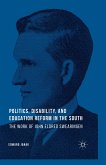This book reviews one hundred years of educational reforms worldwide. Characterized by a tension between governing public and professional forces, the waves of educational reform reflect myriad efforts to define and fulfill professional and public expectations for the world of education. The first wave of reform, based on "progressive" ideals, spread across the globe after World War I, striving to place the student at the center of the education process and respond to the diverse needs of children and youth in a world that included massive population shifts. The second wave nearly obliterated the ideals of the progressive movement that had prevailed for sixty years. Drawing its principles from the business world, the second wave imposed competition, uniform standards, and measurable outputs on students, teachers, and schools, even at the cost of harming at-risk populations and encouraging the infiltration of private sector values into public education systems.
The third wave was launched at the turn of the twenty-first century. Seeking to adjust instructional methods to modern reality, this reform rejected standardized curricula in favor of developing skills such as independent thinking, curiosity, innovation, collaboration among learners, and the ability to mine and process information.
Book I reviews the three waves of reform in the United States, England, Canada, Japan, Singapore, Hong Kong, Australia, and Finland. Book II focuses on Israel's education system - past, present, and future.
Dieser Download kann aus rechtlichen Gründen nur mit Rechnungsadresse in A, B, BG, CY, CZ, D, DK, EW, E, FIN, F, GR, HR, H, IRL, I, LT, L, LR, M, NL, PL, P, R, S, SLO, SK ausgeliefert werden.









